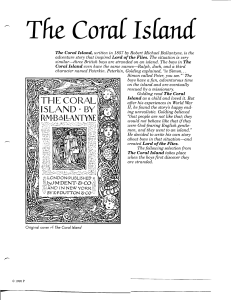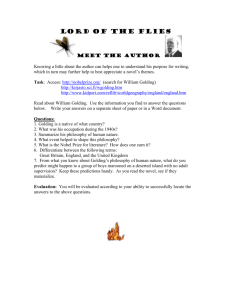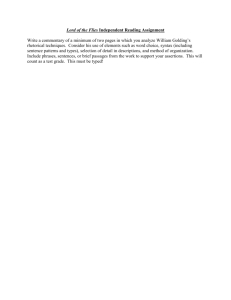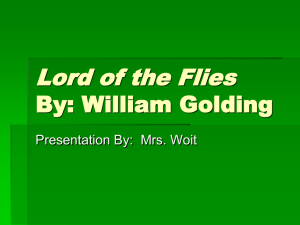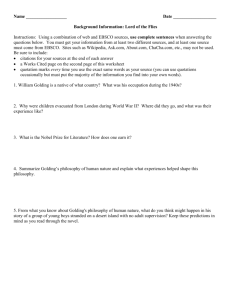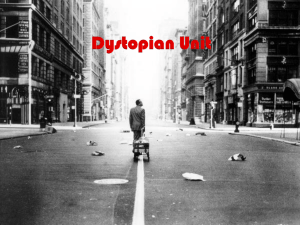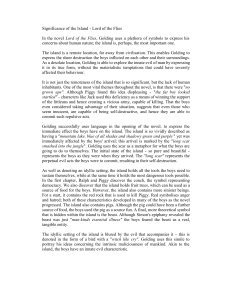Lord of the Flies Always obedient to the rules of the
advertisement
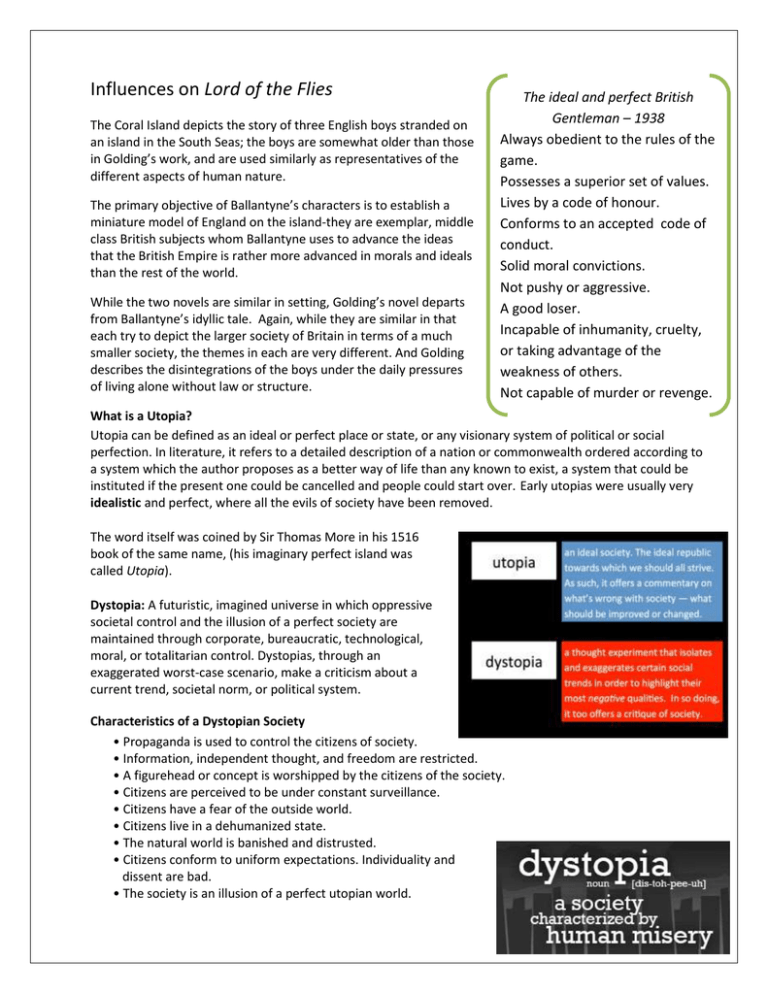
Influences on Lord of the Flies The Coral Island depicts the story of three English boys stranded on an island in the South Seas; the boys are somewhat older than those in Golding’s work, and are used similarly as representatives of the different aspects of human nature. The primary objective of Ballantyne’s characters is to establish a miniature model of England on the island-they are exemplar, middle class British subjects whom Ballantyne uses to advance the ideas that the British Empire is rather more advanced in morals and ideals than the rest of the world. While the two novels are similar in setting, Golding’s novel departs from Ballantyne’s idyllic tale. Again, while they are similar in that each try to depict the larger society of Britain in terms of a much smaller society, the themes in each are very different. And Golding describes the disintegrations of the boys under the daily pressures of living alone without law or structure. The ideal and perfect British Gentleman – 1938 Always obedient to the rules of the game. Possesses a superior set of values. Lives by a code of honour. Conforms to an accepted code of conduct. Solid moral convictions. Not pushy or aggressive. A good loser. Incapable of inhumanity, cruelty, or taking advantage of the weakness of others. Not capable of murder or revenge. What is a Utopia? Utopia can be defined as an ideal or perfect place or state, or any visionary system of political or social perfection. In literature, it refers to a detailed description of a nation or commonwealth ordered according to a system which the author proposes as a better way of life than any known to exist, a system that could be instituted if the present one could be cancelled and people could start over. Early utopias were usually very idealistic and perfect, where all the evils of society have been removed. The word itself was coined by Sir Thomas More in his 1516 book of the same name, (his imaginary perfect island was called Utopia). Dystopia: A futuristic, imagined universe in which oppressive societal control and the illusion of a perfect society are maintained through corporate, bureaucratic, technological, moral, or totalitarian control. Dystopias, through an exaggerated worst-case scenario, make a criticism about a current trend, societal norm, or political system. Characteristics of a Dystopian Society • Propaganda is used to control the citizens of society. • Information, independent thought, and freedom are restricted. • A figurehead or concept is worshipped by the citizens of the society. • Citizens are perceived to be under constant surveillance. • Citizens have a fear of the outside world. • Citizens live in a dehumanized state. • The natural world is banished and distrusted. • Citizens conform to uniform expectations. Individuality and dissent are bad. • The society is an illusion of a perfect utopian world.
